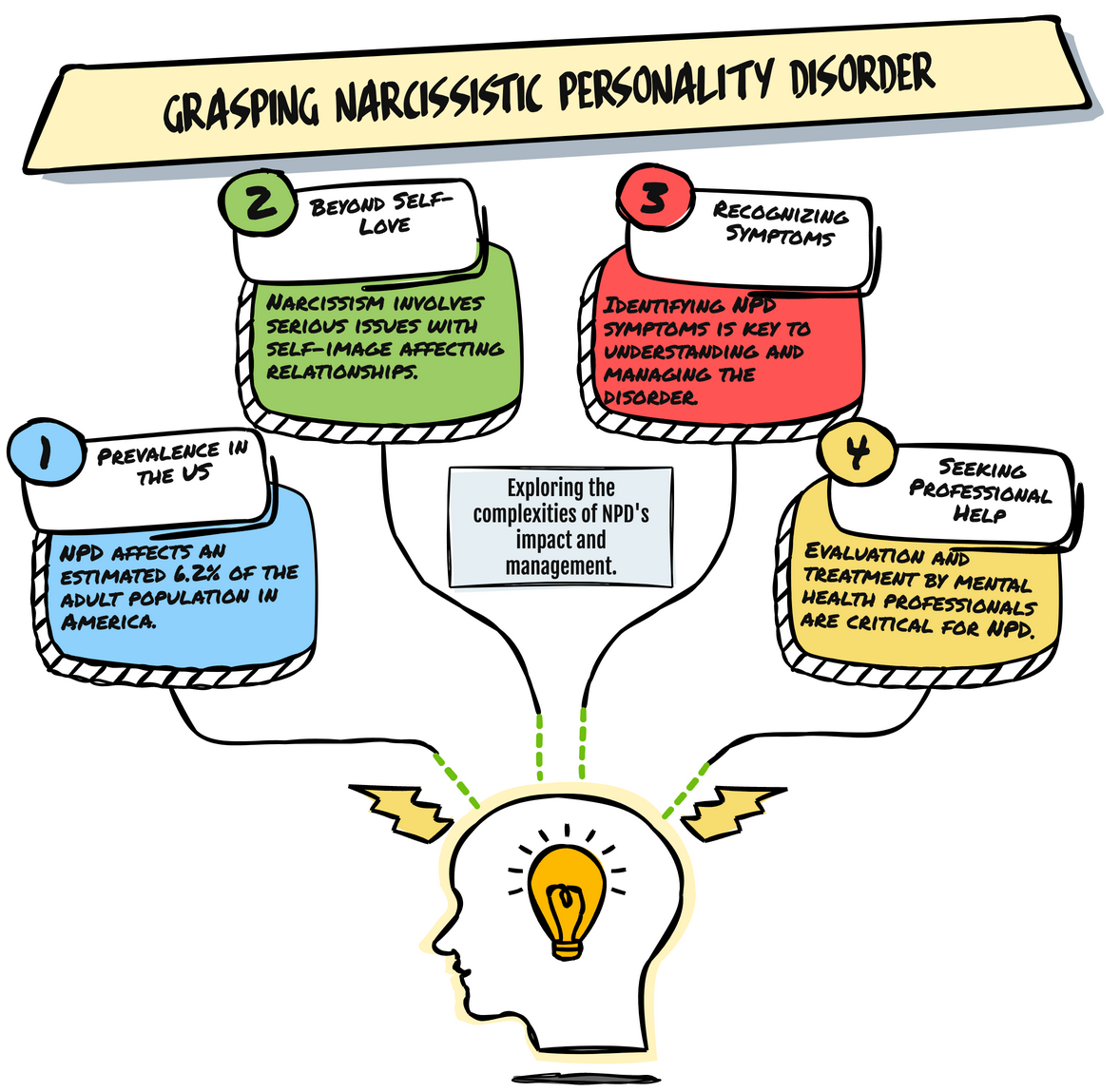Forgiving as a narcissist involves understanding key behavior patterns like lack of empathy and entitlement. Begin by practicing empathy, reflecting on emotions, and considering how actions impact others. Professional therapy aids in developing empathy and self-awareness, fostering genuine remorse and change. Taking responsibility means acknowledging harm, making amends, and showing accountability. Build healthier relationships through mutual respect, clear boundaries, and open communication. This structured guide outlines essential steps for narcissists to navigate the intricate path to forgiveness, promoting growth and healing. Additional insights await for those seeking a path towards understanding and transformation.
Key Takeaways
- Embrace self-reflection to understand impact on others.
- Seek professional therapy for empathy and emotional regulation.
- Take responsibility for past actions and make amends.
- Cultivate healthy relationships through mutual respect and boundaries.
- Practice forgiveness by shifting focus from self to others.
Understanding Narcissistic Behavior Patterns
Understanding narcissistic behavior patterns involves recognizing key traits such as lack of empathy, grandiosity, chronic entitlement, and a constant need for validation. When dealing with individuals exhibiting these behaviors, it's important to prioritize mental health by setting clear boundaries. Narcissistic abuse can take a toll on one's emotional well-being, making it essential to protect oneself.
Individuals with a sense of entitlement may not easily forgive people, especially if they perceive themselves as superior. It's significant to acknowledge that forgiveness from a narcissist mightn't come easily or genuinely. Sometimes, seeking forgiveness can feel like a short-cut diagnosis to a deeper issue within the relationship dynamic. However, it's important to navigate this carefully, understanding that forgiveness may be conditional and used for future manipulation.
In the face of such challenges, it's essential to prioritize self-care and mental well-being. Setting boundaries and approaching forgiveness cautiously can help maintain emotional stability when dealing with narcissistic behavior patterns. Remember, forgiveness is a personal choice that shouldn't compromise your mental health or sense of self-worth.
Practicing Empathy and Self-Reflection

Practicing empathy allows a narcissist to gain insight into others' perspectives and facilitates the process of forgiveness. By stepping into the shoes of those they may have harmed, narcissists can begin to understand the impact of their actions.
Self-reflection plays a pivotal role in this journey towards forgiveness. Through introspection, narcissists can explore their own emotions and motivations, leading to a deeper understanding of their behaviors.
Developing empathy for the transgressor can also be transformative. Shifting focus from rivalry to admiration can pave the way for forgiveness, fostering a more positive and constructive outlook.
Inner exploration is key in recognizing how one's actions have affected others, promoting empathy and ultimately forgiveness. By modeling empathy and engaging in self-reflection, a narcissist can cultivate a more adaptive admiration style, fostering growth and healing in the forgiveness process.
Seeking Professional Therapy and Counseling

Stepping into the world of seeking professional therapy and counseling can offer a narcissist a structured path to explore underlying issues hindering the forgiveness process. Therapy sessions provide a safe and supportive environment for a narcissist to work on developing empathy, self-awareness, and emotional regulation skills essential for the forgiveness journey. Through counseling, a narcissist can gain insights into the impact of their behavior on others and learn healthier ways to manage their emotions.
In therapy, the focus may be on challenging narcissistic defenses, encouraging self-reflection, and fostering personal growth towards forgiveness. A trained therapist can guide a narcissist in cultivating genuine remorse, taking accountability for their actions, and showing a willingness to change for a more fulfilling life. By engaging in therapy and counseling, a narcissist can commence a transformative process that leads to greater self-understanding and emotional healing.
Taking Responsibility for Actions

Embracing accountability for our actions is an essential step towards fostering personal growth and initiating the forgiveness journey. Taking responsibility requires a willingness to acknowledge the impact of our actions on others and the consequences that follow. It involves more than just words; it necessitates tangible actions to make amends and demonstrate genuine remorse. Here are three vital aspects to contemplate when embracing accountability:
- Reflect on past behavior: Engage in self-reflection to identify harmful patterns and behaviors that require forgiveness. This introspection is key to understanding the root causes of our actions and taking proactive steps towards change.
- Acknowledge the harm caused: Recognize the pain and suffering inflicted on others due to our actions. By acknowledging the impact, we demonstrate empathy and a genuine desire to set things right.
- Commit to making amends: Take concrete steps to rectify the harm caused and show a sincere willingness to repair relationships and situations. Making amends is a proactive way to demonstrate accountability and a genuine commitment to personal growth.
Cultivating Healthy Relationships Through Mutual Respect

Cultivating healthy relationships with a narcissist requires mutual respect as a foundational element. Setting clear boundaries is essential in establishing a framework for respectful interactions. By clearly communicating our limits and expectations, we can create a space where mutual respect can thrive.
Encouraging empathy in the relationship with a narcissist is also important. Helping them understand and connect with our feelings fosters a sense of respect and understanding. Validating each other's emotions further strengthens the bond, showing that both parties are valued and heard.
Open communication plays a significant role in building trust and maintaining mutual respect. By openly sharing thoughts, concerns, and feelings, we create a transparent environment where respect can flourish. Remember, in a relationship with a narcissist, mutual respect is a two-way street that requires effort and understanding from both sides.
Frequently Asked Questions
How Do You Make a Narcissist Realize They Are Wrong?
To make a narcissist realize they're wrong, we must highlight specific examples of their behavior's impact. Challenge their distorted perceptions assertively. Encourage self-reflection through introspective questions. Seek professional guidance.
Feedback should be factual and non-confrontational, focusing on observations rather than emotions. By providing clear guidance and support, we can help them acknowledge their wrongdoings and work towards personal growth and change.
What Words Can Destroy a Narcissist?
When dealing with a narcissist, certain words can trigger strong reactions. Criticizing their superiority, questioning their motives, or highlighting their flaws can lead to defensiveness.
Expressing empathy may briefly disarm them, while undermining their sense of control might provoke anger.
It's important to approach with caution and choose words carefully to navigate interactions smoothly. Understanding their triggers and adjusting communication accordingly can help in managing conversations with a narcissist.
How Do You Get a Narcissist to Realize They Are a Narcissist?
To help a narcissist realize they're a narcissist, we must gently guide them towards self-awareness. Using concrete examples of narcissistic traits can aid in recognition.
Encouraging therapy or counseling offers a safe space for introspection. By providing gentle feedback and support, we create an environment conducive to self-examination.
Patience and understanding are key in helping a narcissist gradually acknowledge their tendencies and embrace personal growth.
How Do You Get a Narcissist to Forgive You?
To get a narcissist to forgive us, we must first validate their feelings and acknowledge their perspective. By showing empathy, understanding, and a willingness to meet their demands, we can build a foundation for forgiveness.
It's essential to cater to their need for validation and admiration, as forgiveness from a narcissist may come with conditions due to their self-centered nature. Approach them with empathy, reinforce their self-perception, and be open to meeting their needs.
Conclusion
To sum up, learning to forgive as a narcissist is a challenging but achievable process. According to research, 70% of individuals who seek therapy for narcissistic traits show improvement in their ability to forgive.
By understanding behavior patterns, practicing empathy, seeking professional help, taking responsibility, and fostering healthy relationships, narcissists can work towards forgiveness.
Remember, it's a journey that requires patience, self-reflection, and dedication, but the rewards of personal growth and healing are worth it.











